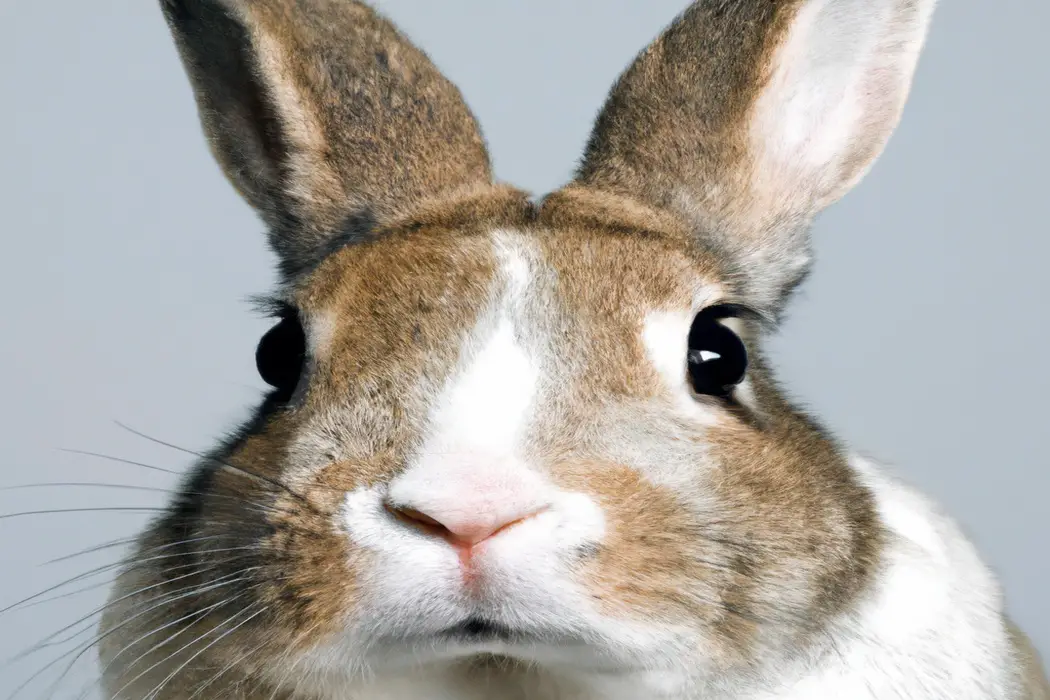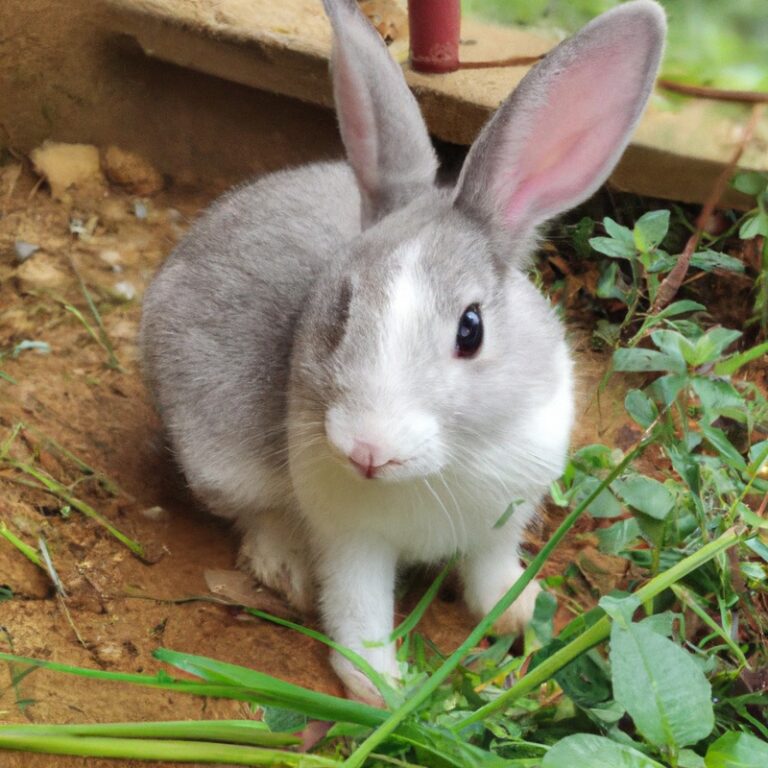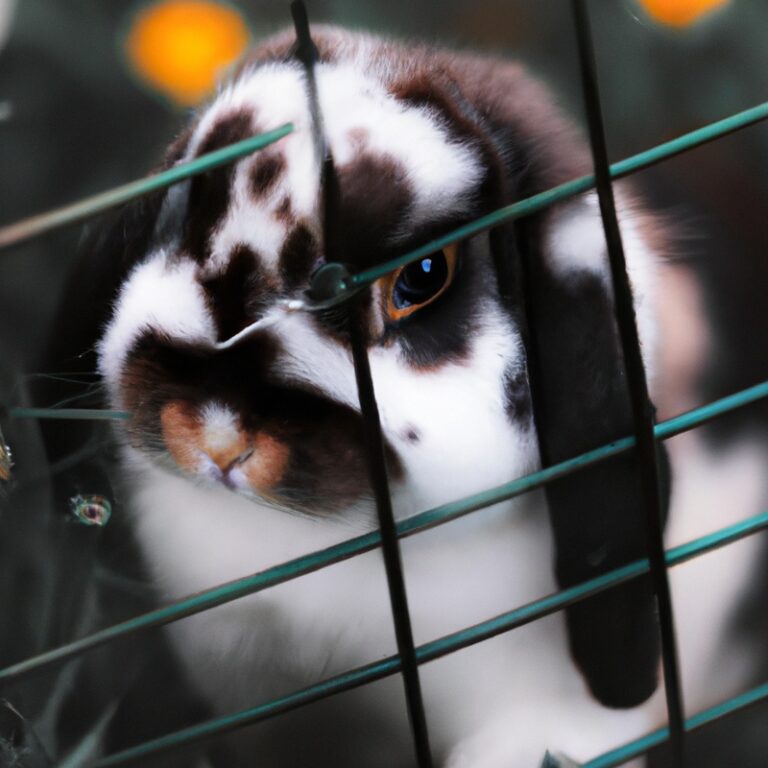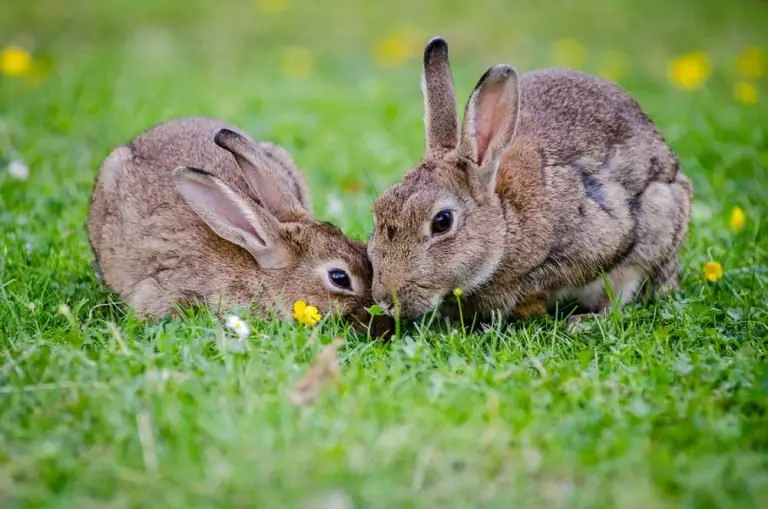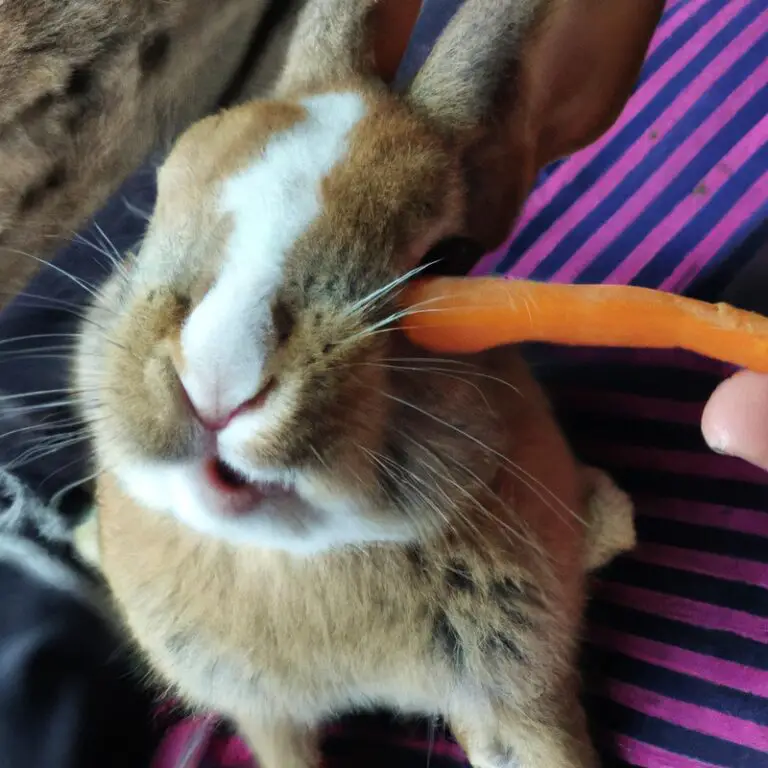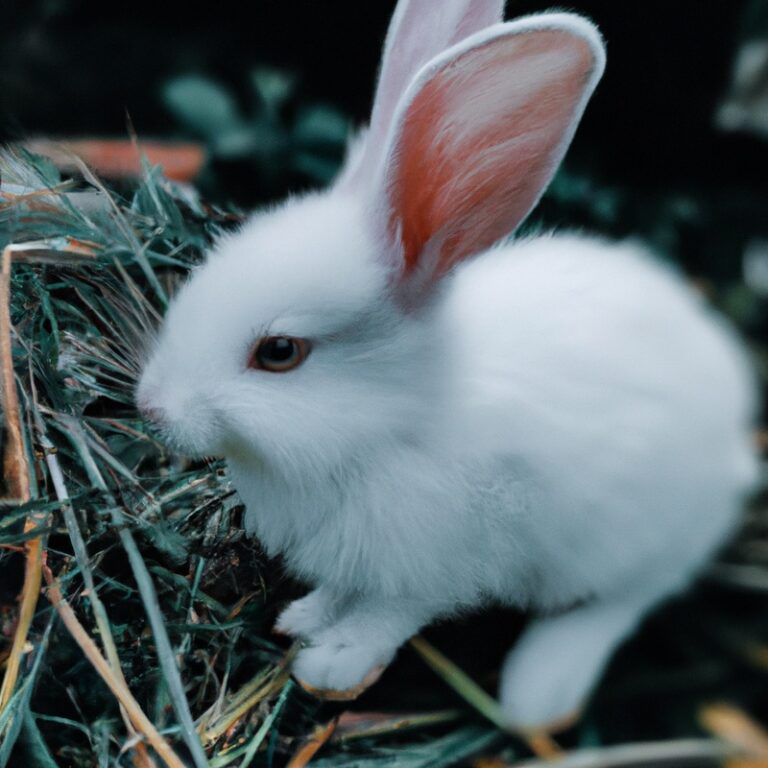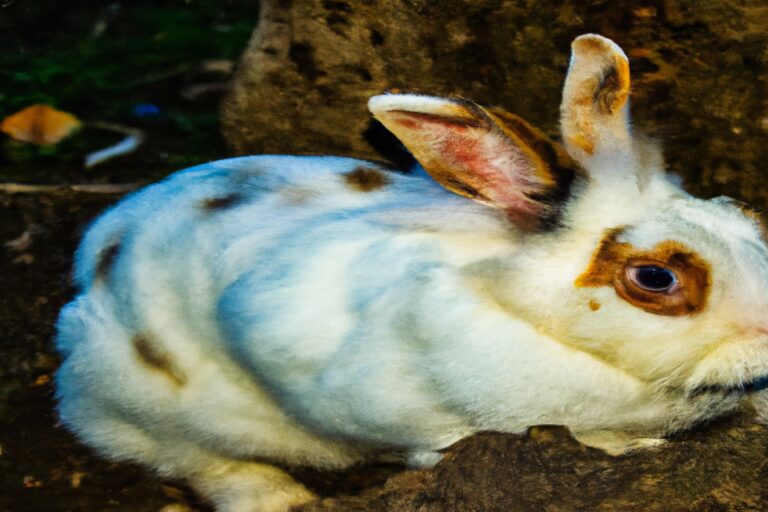How Good Is a Rabbit’s Sense Of Smell? Let’s Find Out!
Key Takeaways:
- A rabbit’s sense of smell is highly acute, allowing them to detect predators from a distance.
- They rely on their sense of smell to find food and identify potential mates.
- Rabbits have a larger olfactory bulb compared to other animals, contributing to their exceptional sense of smell.
- Their sense of smell is so developed that they can detect certain scents even when they are hidden or buried.
Have you ever wondered just how incredible a rabbit’s sense of smell really is?
Well, get ready to be amazed! Rabbits have an olfactory system that is truly remarkable, allowing them to detect scents with incredible precision and sensitivity.
Their noses and olfactory receptors are uniquely designed to pick up even the faintest of smells.
But how does it all work?
And what can rabbits do with such a powerful sense of smell?
In this article, we’ll dive into the fascinating world of a rabbit’s nose, explore their remarkable abilities, and discover how their sense of smell helps them navigate their environment.
So, let’s jump right in and uncover the secrets behind a rabbit’s sense of smell!
| Aspect | Information |
| Smell receptors | Rabbits have about 100 million smell receptors, which is around 40 times more than humans have. |
| Sensitivity | Rabbits have an acute sense of smell. They can detect odors in the parts per billion range. |
| Smell memory | Rabbits have excellent smell memory. They can recall smells for long periods of time. |
| Use of smell | Smell is crucial for rabbits to locate food, detect predators, and find mates. They rely heavily on their sense of smell for survival. |
| Comparison to other animals | Rabbits have a stronger sense of smell than dogs and cats, but not as strong as certain species, such as bloodhounds or bears. |
Rabbit’s Olfactory System
A rabbit’s olfactory system is highly developed, allowing them to detect scents with great precision and sensitivity.
Anatomy of a rabbit’s nose and olfactory receptors
A rabbit’s nose is uniquely built for smelling.
First, let’s talk about the anatomy of their nose.
Rabbits have a divided upper lip and a moist nose, which aids in detecting scents.
They also have long nasal passages that allow for a greater surface area for air and scent molecules to come in contact with their olfactory receptors.
Speaking of receptors, rabbits have a remarkable number of them – around 100 million! That’s why their sense of smell is so strong and helps them navigate their environment.
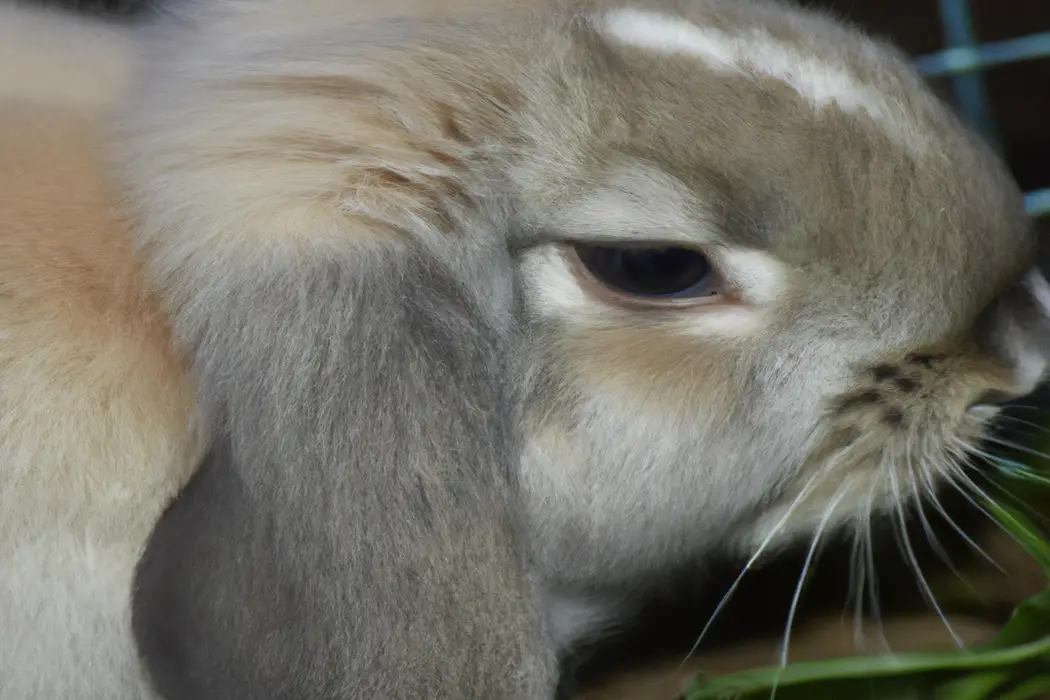
How a rabbit’s olfactory system works to detect scents
A rabbit’s olfactory system is highly developed, allowing them to detect scents with great accuracy. They have a large surface area in their nose, which is lined with millions of olfactory receptors.
These receptors bind to odor molecules in the air, sending signals to the brain for interpretation.
Additionally, rabbits have a specialized structure called the Jacobson’s organ, which helps them detect pheromones and other chemical signals. This combined system enables rabbits to navigate their environment, identify predators, and locate food and potential mates.
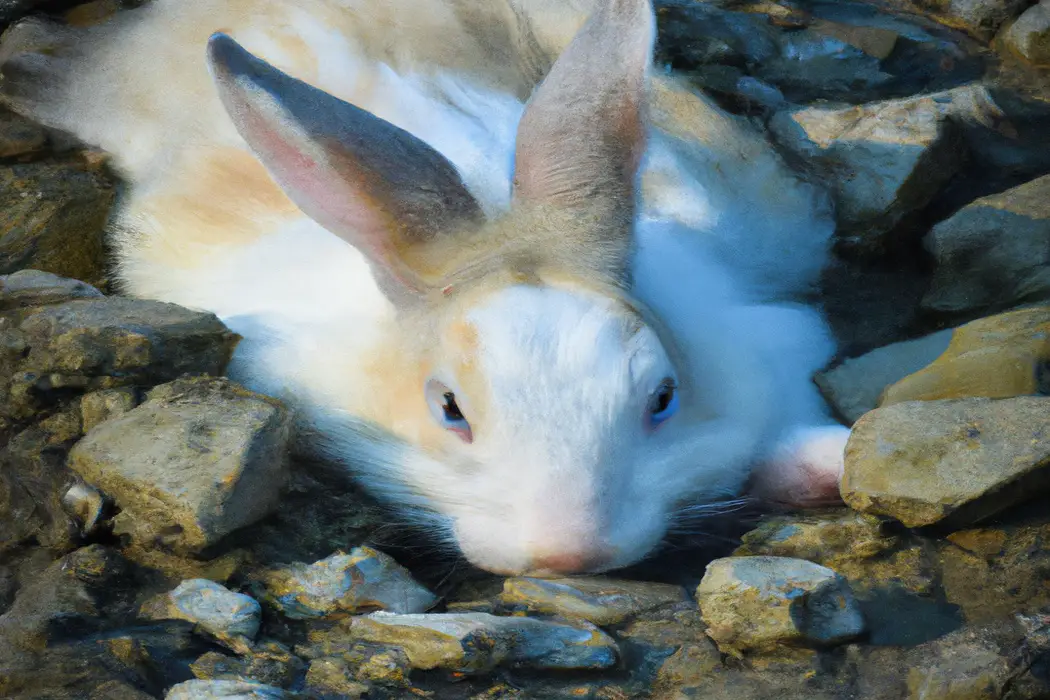
Incredible Sense of Smell in Rabbits
Rabbits have an incredible sense of smell, which is known for its sensitivity and accuracy in detecting scents.
Scientific facts and figures showcasing the sensitivity of a rabbit’s nose
A rabbit’s nose is truly remarkable.
Scientific studies have revealed that rabbits possess a highly sensitive sense of smell.
In fact, their olfactory abilities are among the most acute in the animal kingdom.
Research has shown that rabbits can detect and distinguish an array of scents, even in minuscule amounts.
Their extraordinary nasal capabilities allow them to navigate their surroundings, locate food, and identify potential threats.
With such a keen sense of smell, rabbits rely heavily on their noses to interpret the world around them.
Comparison of a rabbit’s sense of smell with other animals
A rabbit’s sense of smell is highly developed, rivaling that of many other animals.
They have a keen ability to detect scents in the environment, which helps them find food, avoid predators, and communicate with other rabbits.
While not quite as sharp as a dog’s sense of smell, rabbits can still detect a wide range of odors and differentiate between them.
Overall, their sense of smell is an important tool that allows them to navigate their surroundings and stay safe.
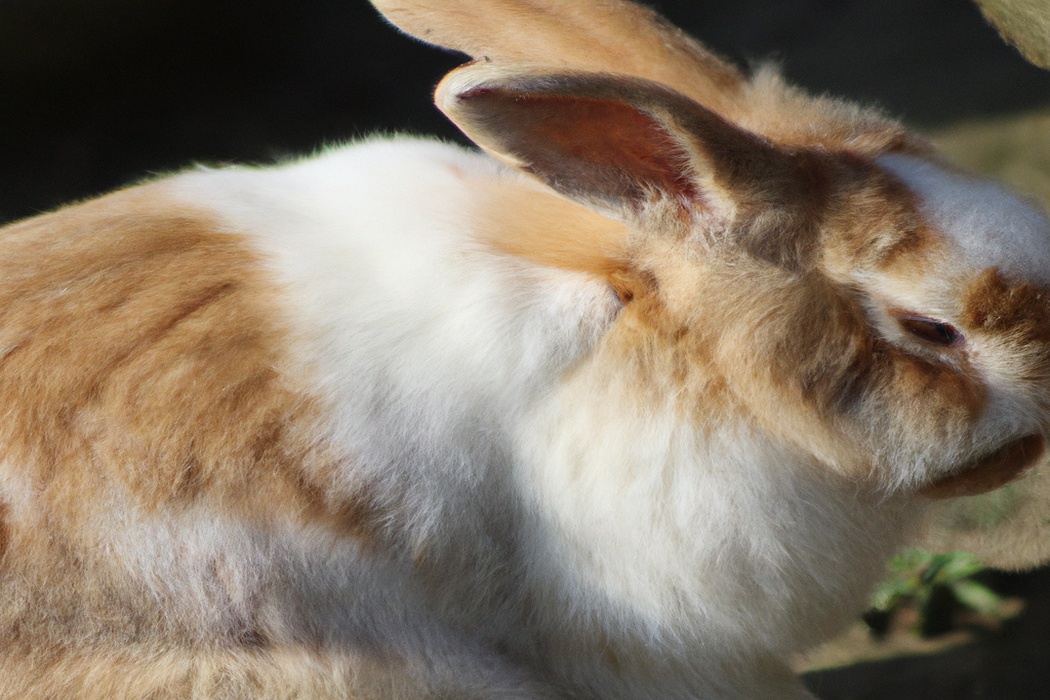
Uses of a Rabbit’s Sense of Smell
A rabbit’s sense of smell plays a crucial role in hunting, detecting predators, communicating with other rabbits, finding food, and identifying safe environments.
Hunting and predator detection abilities
A rabbit has excellent hunting and predator detection abilities due to its acute sense of smell. Their sense of smell allows them to sniff out predators nearby, helping them stay alert and avoid danger.
Additionally, rabbits use their sense of smell to locate food sources, enabling them to find vegetation and other edible items.
This heightened olfactory capability plays a crucial role in a rabbit’s survival and ability to thrive in its environment.
Communication and social interactions among rabbits
Rabbits have complex communication and social interactions. They use a variety of behaviors to communicate with each other.
For example, they may thump their hind legs to alert others of danger, or nudge another rabbit to show affection.
Rabbits also engage in grooming each other, which strengthens social bonds. It’s important to provide rabbits with opportunities for social interaction, such as group living or pairing them with a compatible companion.
Regular socialization helps promote their well-being and mental stimulation.
Finding food and identifying safe environments
Rabbits rely on their keen sense of smell to find food and identify safe environments. Their noses can detect a wide range of scents, allowing them to locate and forage for food efficiently.
This enables them to find suitable plants, herbs, and vegetables to eat.
Additionally, their sense of smell helps them detect potential dangers or predators in their surroundings, helping them to stay safe. Rabbits’ acute sense of smell is crucial for their survival in the wild.
Enhancing a Rabbit’s Sense of Smell
To enhance a rabbit’s sense of smell, you can provide them with stimulating environments and opportunities to forage, as well as using safe and appealing scents to engage their olfactory senses.
Factors that can affect a rabbit’s sense of smell
Many factors can affect a rabbit’s sense of smell.
Diet plays a significant role, as certain foods can either enhance or diminish their olfactory abilities.
Environmental factors such as pollutants or strong smells can also impact a rabbit’s sense of smell.
Additionally, any nasal or respiratory issues can directly influence their ability to detect scents.
Lastly, stress and anxiety can have an indirect effect on a rabbit’s sense of smell, as it can alter their overall health and well-being.
Tips for keeping a rabbit’s olfactory system healthy and active
To keep a rabbit’s olfactory system healthy and active, there are a few simple tips you can follow.
- Provide a clean living environment: Regularly clean your rabbit’s enclosure to prevent any unpleasant odors that could interfere with their sense of smell.
- Offer a variety of scents: Include different herbs, flowers, or safe fruits and vegetables in their diet to stimulate their sense of smell and keep it active.
- Avoid strong fragrances: Perfumes, air fresheners, and other strong scents can overload a rabbit’s sensitive nose. Opt for unscented products in their surroundings.
- Encourage foraging: Give your rabbit opportunities to search for food or treats hidden around their environment. This engages their sense of smell and keeps them mentally stimulated.
Remember, a rabbit’s sense of smell is one of their key senses, so it’s important to take care of it to ensure their overall well-being.
Frequently Asked Questions about Rabbit’s Sense of Smell
How far can a rabbit smell?
A rabbit’s sense of smell is incredibly strong, allowing them to detect scents from up to 2 miles away. This sharp sense of smell helps them find food and avoid predators.
Their noses are finely-tuned to pick up subtle scents, and their large nasal passages and specialized cells facilitate this impressive ability.
Rabbits rely heavily on their sense of smell to navigate their surroundings and stay safe in the wild.
Can a rabbit smell fear or sickness in humans?
Yes, rabbits have a keen sense of smell and can detect fear or sickness in humans.
Their sense of smell is very strong and they can pick up on subtle changes in a person’s body odor or pheromones.
This ability is believed to be a result of their survival instincts in the wild, where they rely on their sense of smell to detect predators and identify potential dangers.
So, if you’re feeling scared or unwell around a rabbit, they might be able to sense it.
Can a rabbit’s sense of smell be used for training purposes?
A rabbit’s sense of smell can definitely be utilized for training purposes. Their keen olfactory abilities allow them to detect subtle scents and discriminate between different smells.
You can harness this natural talent by using positive reinforcement techniques and associating certain scents with specific behaviors or actions.
For example, you can train a rabbit to come to you when they smell a particular scent or to retrieve objects based on smell cues. Their sense of smell is a powerful tool that can enhance your training sessions and strengthen your bond with your furry friend.
Final Verdict
A rabbit’s sense of smell is truly remarkable. Their anatomy, specifically their large nasal cavity and abundance of olfactory receptors, gives them an exceptional ability to detect scents.
With their incredible sensitivity to odors, rabbits can detect predators, communicate with other rabbits, find food, and navigate their environment.
It is important to keep a rabbit’s olfactory system healthy by avoiding factors that can negatively affect their sense of smell. By understanding and appreciating the power of a rabbit’s sense of smell, we can better care for these wonderful creatures and provide them with an enriching and stimulating environment.

